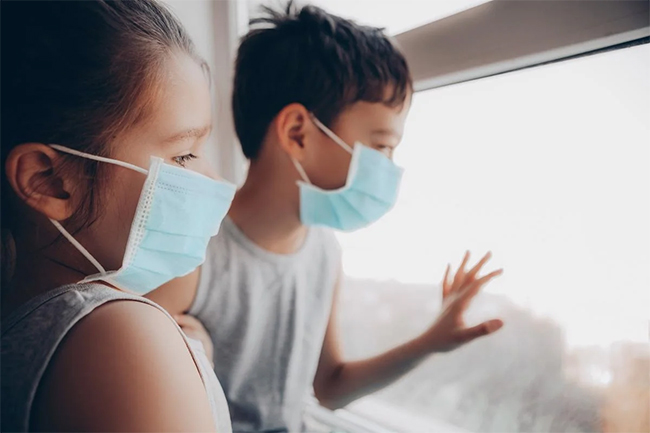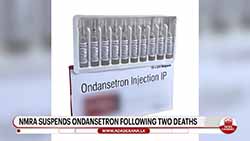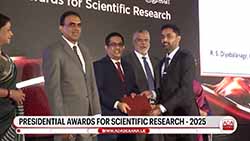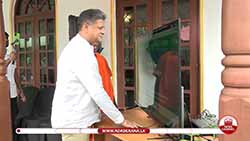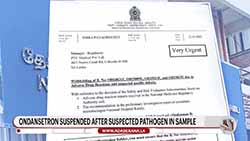Local study ascertains level of impact of COVID-19 on children and youth
December 17, 2021 11:59 pm
A study conducted locally to ascertain the level of impact of COVID-19 on children and youth in Sri Lanka has observed an increased consumption of alcohol and illicit drugs by children and adolescents during the pandemic.
The Youth-Led Participatory Study on the Impact of COVID-19 on Child Protection and Psychological Wellbeing of Children and Youth was launched recently at a special webinar organized by the Alliance of Youth for Ending Violence Against Children (AYEVAC) and ChildFund International Sri Lanka in collaboration with five grassroot NGOs around Sri Lanka.
The study was a collective effort by 58 AYEVAC youth leaders representing Nuwara-Eliya, Trincomalee, Batticaloa, Matale, Puttalam and Monaragala.
With regard to this increased consumption of alcohol and illicit drugs during the pandemic, the youth leaders noted how the shutdown of liquor stores during the lockdowns led to illegal production of illicit alcohol across many of the districts and also how adults had involved children for both production and distribution of illicit liquor or drugs during this time.
This led to children being exposed to certain dangerous avenues.
During the webinar, a youth leader stressed on the significant need to impose strict legal action against illicit liquor and drug traffickers, in an attempt to protect the vulnerable communities in the country.
“Apart from directing these young illicit drug and alcohol addicts to reform and rehabilitation centres, it is important to properly inform parents and children on the fight against drugs and alcohol. We also recommend updating the education methods for children living in rehabilitation centres and children’s homes across Sri Lanka.”
This virtual symposium was held under the auspices of Director of the Child & Women Bureau of Sri Lanka Police SSP Dharshika Ranasinghe, Deputy Commissioner of Department of Probation & Childcare Service Mr. Sudheera Withana, Assistant Director (Psychological) of National Child Protection Authority Mrs. Priyangika Rathnayake and Director (Development) of State Ministry of Women & Child Affairs Mrs. Iresha N. Dharmasena.
The study has been conducted for over a month amidst the challenges posed by the ongoing pandemic situation.
The alarming findings and crucial recommendations of the youth leaders comes at a time when growing concerns on the safety and wellbeing of children and adolescents across Sri Lanka were highlighted during the COVID-19 pandemic and its consequent lockdowns.
This extensive field assessment was conducted with the involvement of 571 children and youth that included 281 girls.
In their methodology, the youth leaders organized small groups of children and youth into different age categories and facilitated Listening and Learning (L&L) sessions. L&L is a participatory assessment methodology which is designed and successfully tested by some of the renowned international organizations. And this particular L&L conversation was a method that was specially designed on participatory action research principles.
During these L&L sessions, youth leaders sat with a small group of children/youth and facilitated a conversation using different participatory tools and techniques. They did not use a set of questionnaires. Instead, the youth leaders identified specific areas of inquiry to facilitate a free flow of conversation. They also asked questions to capture participant’s personal experience and perceptions of any particular situation. The analysis and interpretation of findings were also finalized by the youth leaders under the technical guidance of consultants and local NGO staff.
The discussions on the findings of the study, the cases of sexual abuse and harassments, especially related to girls are on the rise during the pandemic.
A youth leader who addressed the webinar said the findings came with safety concerns of the girl child and young women especially due to the extended use of the internet and social media platforms during lockdowns.
She noted that they have witnessed how this constant risk to their safety had triggered feelings of pain, anxiety and fear in these young girls. “Their personality, confidence as well as freedom had been affected by the situation.”
Another youth leader emphasized on the need to immediately educate the girl child across Sri Lanka on their child rights including sexual rights, equality between men and women, ethics related to digital communication and importance of being law abiding citizens. “We recommend that Government bodies, NGOs and civil society organizations must come forward to protect girls who are at the risk of violence. There is also a prompt need for a comprehensive national action plan on ensuring the safety ofgirls and women. We further believe that this discourse on the safety of children, especially girls, should be included in the school curriculum so that this will become a part of children’s daily conversations.”
Meanwhile, SSP. Dharshika Ranasinghe has pointed out a key issue that the officials have so far failed to address when ensuring the safety of a child or adolescent of violence, during the legal proceedings.
“There are no laws to say that a child who was sexually abused or harassed should be separated from their accused perpetrator. This serious lapse in the legal system is why we see these victimised children having to go back to unsafe homes or environments where their perpetrator, in most cases it would either be their own father or a family member, also lives until any legal proceedings are concluded. And that can sometimes take months or even more time.”
SSP Ranasinghe further stated that, in most cases, the families will not come forward to report these incidents to police out of embarrassment or financial constraints since, in almost all households it is the father, the accused perpetrator, who usually makes a sufficient income. The mothers mostly make the decision to keep quiet for the sake of the family’s financial futures, she explained.
The AYEVAC had also witnessed the sudden increase of corporal punishment cases during the pandemic, which were of grave concern a decade ago but were considerably reduced after stringent interventions by CSOs and NGOs over the years. These violent punishment methods however, are on the rise now.
In Batticaloa, several incidents were reported in which, school teachers and principals had adopted corporal punishment methods on students. This had resulted in arguments between the parents and the school administration, which later involved legal interventions. There had also been incidents where young boys had committed or attempted to commit suicide owing to these severe punishments by parents, for reasons such as love relationships or bad school grades. Some male children had left their homes and education behind because of abusive fathers, only to find daily wage employment to survive themselves.
Youth leaders who represented the Batticaloa district stressed on their recommendations to mitigate this violence against children. “There is a need to make parents and teachers aware of the mental as well as physical implications of these types of punishments on children while Government bodies, NGOs and civil society organizations must take action against such cases. It is also high time to educate all relevant parties on positive upbringing of children”, they emphasized.
It was the rise of reported incidents on violence against children in certain parts of Sri Lanka alongside their own neighbouring homes that led AYEVAC youth leaders to propose this field assessment which was immediately backed with the financial and technical support of the ChildFund International Sri Lanka. The initiative was also fuelled with guidance from VOICE Area Federation - Puttalam, Action Unity Lanka - Batticaloa, Child Development Fund - Trincomalee, T Field Child Development Federation - Nuwara Eliya and Abhimana Community Development Association – Matale & Monaragala.
Efforts by these young leaders have been highly commended by the relevant Government officers who were gracing the event.
“We will make sure to add these recommendations when implementing the proposed National Policy on the Prevention of Child Abuse”, assured Assistant Director (Psychological) of National Child Protection Authority Mrs. Priyangika Rathnayake.
The ChildFund International Sri Lanka highlighted that a youth-led participatory assessment which comes as a result of Participatory Action Study, builds knowledge by listening and learning from experiences of others.
The NGO believes the AYEVAC leaders who participated in the assessment will now be able to design and implement the most appropriate interventions for similar challenges within their villages.
Their involvement in the process will also ensure these young leaders acquire, sharpen and enhance their inbuilt leadership skills to successfully make an impact, while their increased levels of confidence and improved knowledge could help create an empowered next generation that is well aware of tackling incidents of violence against children and youth, to safeguard their own communities.



